Meet our Team
Caltech and the University of Minnesota have come together to identify new possibilities for helping children with ACC.
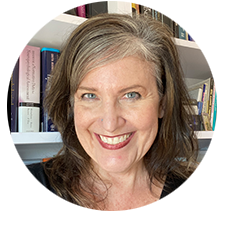
Lynn K. Paul, Ph.D.
Principal Investigator
Senior Research Scientist at California Institute of Technology and an Associate Research Professor at Fuller Graduate School of Psychology. Read More
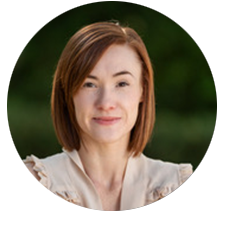
Jasmin Turner
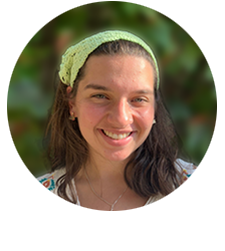
Ella Bohlman

Jed Elison, PhD
Jed Elison is an Associate Professor in the Institute of Child Development, with a joint appointment in the Department of Pediatrics, at the University of Minnesota. Read More
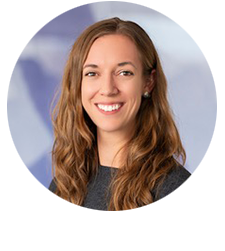
Lauren Haisley, PhD
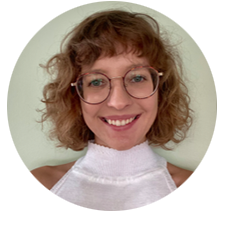
Lana Hantzsch

Aaron Glick, M.S.
Lynn K. Paul, PhD
 Lynn K. Paul, PhD is a Senior Research Scientist at California Institute of Technology and an Associate Research Professor at Fuller Graduate School of Psychology. Dr Paul’s research is broadly focused on understanding the role that cortical connectivity plays in development of higher-order social cognition and the brain’s capacity for reorganization during development. At Caltech, she directs research programs studying brain structure, cognition and social processing in dysgenesis of the corpus callosum and hemispherectomy. She also collaborates with Dr. Ralph Adolphs on studies of social processing and brain structure in adults with psychiatric diagnoses such as autism and anxiety disorders, as well as studies of individuals with congenital bilateral amygdala lesions. Dr. Paul is director of the Psychological Assessment for Research Laboratory at Caltech and principal investigator for the Psychological Assessment Core of the NIH-funded Conte Center for Social Decision Making. / Dr Paul was the founding president of the National Organization for Disorders of the Corpus Callosum (NODCC), a not-for-profit that brings families, clinicians, and scientists together in the effort to improve quality of life for people with callosal disorders. She has co-authored two children’s books about callosal agenesis: “ACC and Me” and “Emme and Me.” / Finally, Dr Paul maintains a clinical psychology practice in Pasadena (L.K.Paul and Associates), where she sees adult outpatient psychotherapy clients and conducts neuropsychological assessments on individuals with callosal dysgenesis. Dr Paul received her PhD in Clinical Psychology from Fuller Graduate School of Psychology and completed a post-doctoral fellowship in clinical neuropsychology from the Department of Neurology, UCLA.
Lynn K. Paul, PhD is a Senior Research Scientist at California Institute of Technology and an Associate Research Professor at Fuller Graduate School of Psychology. Dr Paul’s research is broadly focused on understanding the role that cortical connectivity plays in development of higher-order social cognition and the brain’s capacity for reorganization during development. At Caltech, she directs research programs studying brain structure, cognition and social processing in dysgenesis of the corpus callosum and hemispherectomy. She also collaborates with Dr. Ralph Adolphs on studies of social processing and brain structure in adults with psychiatric diagnoses such as autism and anxiety disorders, as well as studies of individuals with congenital bilateral amygdala lesions. Dr. Paul is director of the Psychological Assessment for Research Laboratory at Caltech and principal investigator for the Psychological Assessment Core of the NIH-funded Conte Center for Social Decision Making. / Dr Paul was the founding president of the National Organization for Disorders of the Corpus Callosum (NODCC), a not-for-profit that brings families, clinicians, and scientists together in the effort to improve quality of life for people with callosal disorders. She has co-authored two children’s books about callosal agenesis: “ACC and Me” and “Emme and Me.” / Finally, Dr Paul maintains a clinical psychology practice in Pasadena (L.K.Paul and Associates), where she sees adult outpatient psychotherapy clients and conducts neuropsychological assessments on individuals with callosal dysgenesis. Dr Paul received her PhD in Clinical Psychology from Fuller Graduate School of Psychology and completed a post-doctoral fellowship in clinical neuropsychology from the Department of Neurology, UCLA.
Jasmin Turner
 Jasmin recently completed her MA in Clinical Psychology at California State University, Northridge, where her research focused on behavioral and emotion dysregulation. During this time she was an intern at CSUN’s Anxiety and Mood Clinic where she treated individuals with depression and anxiety. She joined the Emotion and Social Cognition Lab at Caltech in 2017 and currently works alongside Dr. Lynn K. Paul studying infants with agenesis of the corpus callosum.
Jasmin recently completed her MA in Clinical Psychology at California State University, Northridge, where her research focused on behavioral and emotion dysregulation. During this time she was an intern at CSUN’s Anxiety and Mood Clinic where she treated individuals with depression and anxiety. She joined the Emotion and Social Cognition Lab at Caltech in 2017 and currently works alongside Dr. Lynn K. Paul studying infants with agenesis of the corpus callosum.
Ella Bohlman
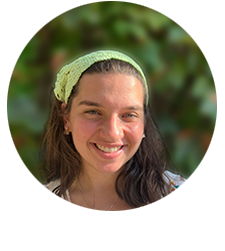 Ella is currently working on her B.S. from the University of Illinois – Urbana-Champaign, where she studies Cognitive Psychology, Linguistics, and Spanish. At UIUC, Ella is a research assistant in the Language and Learning Lab, where she is studying language production. She joined the Caltech’s Emotion and Social Cognition Lab and the ACC Research Project in 2022.
Ella is currently working on her B.S. from the University of Illinois – Urbana-Champaign, where she studies Cognitive Psychology, Linguistics, and Spanish. At UIUC, Ella is a research assistant in the Language and Learning Lab, where she is studying language production. She joined the Caltech’s Emotion and Social Cognition Lab and the ACC Research Project in 2022.
Jed Elison, PhD
 Jed Elison is an Associate Professor in the Institute of Child Development, with a joint appointment in the Department of Pediatrics, at the University of Minnesota. He earned his Ph.D. from the University of North Carolina at Chapel Hill and acquired postdoctoral training from the California Institute of Technology. His work focuses on children between 3 and 36 months of age, with a particular interest in the immense changes in brain and behavioral development that occur between 6 and 18 months. Clinically, he is focused on identifying incipient behavioral and brain-based biomarkers of risk.
Jed Elison is an Associate Professor in the Institute of Child Development, with a joint appointment in the Department of Pediatrics, at the University of Minnesota. He earned his Ph.D. from the University of North Carolina at Chapel Hill and acquired postdoctoral training from the California Institute of Technology. His work focuses on children between 3 and 36 months of age, with a particular interest in the immense changes in brain and behavioral development that occur between 6 and 18 months. Clinically, he is focused on identifying incipient behavioral and brain-based biomarkers of risk.
Lauren Haisley, PhD

Lauren Haisley PhD, LP, is a pediatric neuropsychologist, Assistant Professor in the Department of Pediatrics and clinician on multiple studies examining early social and emotional development at the Masonic Institute for the Developing Brain. Lauren received her PhD in clinical psychology with a concentration in neuropsychology from the University of Connecticut where she studied early detection of autism spectrum disorders, parent-child relationships, and the development of executive functioning skills within psychiatric populations. Prior to her current position at the University of Minnesota, she was an Assistant Professor and pediatric neuropsychologist within Neurology at the University of Colorado School of Medicine/Children’s Hospital of Colorado. Outside of work, Lauren enjoys reading, hiking, trying to learn ukulele from YouTube videos, and playing trivia.
Lana Hantzsch

Lana received her B.S. from the University of Wisconsin – Madison, where she studied Neurobiology, Psychology, and Music Performance. In 2021, she joined Jed Elison’s lab (E-Lab) as a lab manager & study coordinator – she primarily coordinates the research visits at the University of Minnesota for the ACC Infant study. Prior to joining the E-Lab, she worked as a research assistant at the Center for Healthy Minds as a lab manager with the Speech Motor Neuroscience Group at UW-Madison.
Aaron Glick, MS
 Aaron completed a BS in Engineering Physics at Colorado School of Mines and a MS in Communication Sciences and Disorders at McGill University. In 2022, Aaron joined Jed Elison’s lab as a data manager and developer. Previously, he worked as an analyst in eLearning, direct-care for children with intellectual and developmental disorders, and as a clinical app developer. Aaron has researched complexity in quantum systems, and the spread of stigma related to voice disorders, and the social factors that impact how children learn from screens. Aaron manages the database for the ACC Infant Study and is motivated to understand the complex behavioral and language development of children with ACC.
Aaron completed a BS in Engineering Physics at Colorado School of Mines and a MS in Communication Sciences and Disorders at McGill University. In 2022, Aaron joined Jed Elison’s lab as a data manager and developer. Previously, he worked as an analyst in eLearning, direct-care for children with intellectual and developmental disorders, and as a clinical app developer. Aaron has researched complexity in quantum systems, and the spread of stigma related to voice disorders, and the social factors that impact how children learn from screens. Aaron manages the database for the ACC Infant Study and is motivated to understand the complex behavioral and language development of children with ACC.
Eli Johnson
 Eli graduated with a BA in Psychology from St. Olaf College in 2015. His interests in autism, neuroscience, and child development brought him to his current role as a Research Scientist in Jed Elison’s ELAB at the University of Minnesota. There he processes survey and eye tracking data and comanages ELAB’s LORIS database. Eli has previously worked in Dr. Aston-Jones neuroscience lab at Rutgers University and as an ABA therapist for children with autism.
Eli graduated with a BA in Psychology from St. Olaf College in 2015. His interests in autism, neuroscience, and child development brought him to his current role as a Research Scientist in Jed Elison’s ELAB at the University of Minnesota. There he processes survey and eye tracking data and comanages ELAB’s LORIS database. Eli has previously worked in Dr. Aston-Jones neuroscience lab at Rutgers University and as an ABA therapist for children with autism.
Remya Nair
 Remya is a Staff Scientist at the Emotion and Social Cognition Lab at Caltech. Her interests include using fMRI data analysis to study functional organization in the brain and the development of neuroimaging data processing pipelines for big data management. She is currently working with Dr. Lynn K. Paul on projects involving both of the above and with Dr. Ralph Adolphs on a project involving concurrent electrical stimulation during fMRI in lesion patients.
Remya is a Staff Scientist at the Emotion and Social Cognition Lab at Caltech. Her interests include using fMRI data analysis to study functional organization in the brain and the development of neuroimaging data processing pipelines for big data management. She is currently working with Dr. Lynn K. Paul on projects involving both of the above and with Dr. Ralph Adolphs on a project involving concurrent electrical stimulation during fMRI in lesion patients.
Lynn K. Paul, PhD
 Lynn K. Paul, PhD is a Senior Research Scientist at California Institute of Technology and an Associate Research Professor at Fuller Graduate School of Psychology. Dr Paul’s research is broadly focused on understanding the role that cortical connectivity plays in development of higher-order social cognition and the brain’s capacity for reorganization during development. At Caltech, she directs research programs studying brain structure, cognition and social processing in dysgenesis of the corpus callosum and hemispherectomy. She also collaborates with Dr. Ralph Adolphs on studies of social processing and brain structure in adults with psychiatric diagnoses such as autism and anxiety disorders, as well as studies of individuals with congenital bilateral amygdala lesions. Dr. Paul is director of the Psychological Assessment for Research Laboratory at Caltech and principal investigator for the Psychological Assessment Core of the NIH-funded Conte Center for Social Decision Making. / Dr Paul was the founding president of the National Organization for Disorders of the Corpus Callosum (NODCC), a not-for-profit that brings families, clinicians, and scientists together in the effort to improve quality of life for people with callosal disorders. She has co-authored two children’s books about callosal agenesis: “ACC and Me” and “Emme and Me.” / Finally, Dr Paul maintains a clinical psychology practice in Pasadena (L.K.Paul and Associates), where she sees adult outpatient psychotherapy clients and conducts neuropsychological assessments on individuals with callosal dysgenesis. Dr Paul received her PhD in Clinical Psychology from Fuller Graduate School of Psychology and completed a post-doctoral fellowship in clinical neuropsychology from the Department of Neurology, UCLA.
Lynn K. Paul, PhD is a Senior Research Scientist at California Institute of Technology and an Associate Research Professor at Fuller Graduate School of Psychology. Dr Paul’s research is broadly focused on understanding the role that cortical connectivity plays in development of higher-order social cognition and the brain’s capacity for reorganization during development. At Caltech, she directs research programs studying brain structure, cognition and social processing in dysgenesis of the corpus callosum and hemispherectomy. She also collaborates with Dr. Ralph Adolphs on studies of social processing and brain structure in adults with psychiatric diagnoses such as autism and anxiety disorders, as well as studies of individuals with congenital bilateral amygdala lesions. Dr. Paul is director of the Psychological Assessment for Research Laboratory at Caltech and principal investigator for the Psychological Assessment Core of the NIH-funded Conte Center for Social Decision Making. / Dr Paul was the founding president of the National Organization for Disorders of the Corpus Callosum (NODCC), a not-for-profit that brings families, clinicians, and scientists together in the effort to improve quality of life for people with callosal disorders. She has co-authored two children’s books about callosal agenesis: “ACC and Me” and “Emme and Me.” / Finally, Dr Paul maintains a clinical psychology practice in Pasadena (L.K.Paul and Associates), where she sees adult outpatient psychotherapy clients and conducts neuropsychological assessments on individuals with callosal dysgenesis. Dr Paul received her PhD in Clinical Psychology from Fuller Graduate School of Psychology and completed a post-doctoral fellowship in clinical neuropsychology from the Department of Neurology, UCLA.
Jasmin Turner
 Jasmin recently completed her MA in Clinical Psychology at California State University, Northridge, where her research focused on behavioral and emotion dysregulation. During this time she was an intern at CSUN’s Anxiety and Mood Clinic where she treated individuals with depression and anxiety. She joined the Emotion and Social Cognition Lab at Caltech in 2017 and currently works alongside Dr. Lynn K. Paul studying infants with agenesis of the corpus callosum.
Jasmin recently completed her MA in Clinical Psychology at California State University, Northridge, where her research focused on behavioral and emotion dysregulation. During this time she was an intern at CSUN’s Anxiety and Mood Clinic where she treated individuals with depression and anxiety. She joined the Emotion and Social Cognition Lab at Caltech in 2017 and currently works alongside Dr. Lynn K. Paul studying infants with agenesis of the corpus callosum.
Ella Bohlman
 Ella is currently working on her B.S. from the University of Illinois – Urbana-Champaign, where she studies Cognitive Psychology, Linguistics, and Spanish. At UIUC, Ella is a research assistant in the Language and Learning Lab, where she is studying language production. She joined the Caltech’s Emotion and Social Cognition Lab and the ACC Research Project in 2022.
Ella is currently working on her B.S. from the University of Illinois – Urbana-Champaign, where she studies Cognitive Psychology, Linguistics, and Spanish. At UIUC, Ella is a research assistant in the Language and Learning Lab, where she is studying language production. She joined the Caltech’s Emotion and Social Cognition Lab and the ACC Research Project in 2022.
Jed Elison, PhD
 Jed Elison is an Associate Professor in the Institute of Child Development, with a joint appointment in the Department of Pediatrics, at the University of Minnesota. He earned his Ph.D. from the University of North Carolina at Chapel Hill and acquired postdoctoral training from the California Institute of Technology. His work focuses on children between 3 and 36 months of age, with a particular interest in the immense changes in brain and behavioral development that occur between 6 and 18 months. Clinically, he is focused on identifying incipient behavioral and brain-based biomarkers of risk.
Jed Elison is an Associate Professor in the Institute of Child Development, with a joint appointment in the Department of Pediatrics, at the University of Minnesota. He earned his Ph.D. from the University of North Carolina at Chapel Hill and acquired postdoctoral training from the California Institute of Technology. His work focuses on children between 3 and 36 months of age, with a particular interest in the immense changes in brain and behavioral development that occur between 6 and 18 months. Clinically, he is focused on identifying incipient behavioral and brain-based biomarkers of risk.
Lauren Haisley, PhD

Lauren Haisley PhD, LP, is a pediatric neuropsychologist, Assistant Professor in the Department of Pediatrics and clinician on multiple studies examining early social and emotional development at the Masonic Institute for the Developing Brain. Lauren received her PhD in clinical psychology with a concentration in neuropsychology from the University of Connecticut where she studied early detection of autism spectrum disorders, parent-child relationships, and the development of executive functioning skills within psychiatric populations. Prior to her current position at the University of Minnesota, she was an Assistant Professor and pediatric neuropsychologist within Neurology at the University of Colorado School of Medicine/Children’s Hospital of Colorado. Outside of work, Lauren enjoys reading, hiking, trying to learn ukulele from YouTube videos, and playing trivia.
Lana Hantzsch

Lana received her B.S. from the University of Wisconsin – Madison, where she studied Neurobiology, Psychology, and Music Performance. In 2021, she joined Jed Elison’s lab (E-Lab) as a lab manager & study coordinator – she primarily coordinates the research visits at the University of Minnesota for the ACC Infant study. Prior to joining the E-Lab, she worked as a research assistant at the Center for Healthy Minds as a lab manager with the Speech Motor Neuroscience Group at UW-Madison.
Aaron Glick, MS
 Aaron completed a BS in Engineering Physics at Colorado School of Mines and a MS in Communication Sciences and Disorders at McGill University. In 2022, Aaron joined Jed Elison’s lab as a data manager and developer. Previously, he worked as an analyst in eLearning, direct-care for children with intellectual and developmental disorders, and as a clinical app developer. Aaron has researched complexity in quantum systems, and the spread of stigma related to voice disorders, and the social factors that impact how children learn from screens. Aaron manages the database for the ACC Infant Study and is motivated to understand the complex behavioral and language development of children with ACC.
Aaron completed a BS in Engineering Physics at Colorado School of Mines and a MS in Communication Sciences and Disorders at McGill University. In 2022, Aaron joined Jed Elison’s lab as a data manager and developer. Previously, he worked as an analyst in eLearning, direct-care for children with intellectual and developmental disorders, and as a clinical app developer. Aaron has researched complexity in quantum systems, and the spread of stigma related to voice disorders, and the social factors that impact how children learn from screens. Aaron manages the database for the ACC Infant Study and is motivated to understand the complex behavioral and language development of children with ACC.
Remya Nair
 Remya is a Staff Scientist at the Emotion and Social Cognition Lab at Caltech. Her interests include using fMRI data analysis to study functional organization in the brain and the development of neuroimaging data processing pipelines for big data management. She is currently working with Dr. Lynn K. Paul on projects involving both of the above and with Dr. Ralph Adolphs on a project involving concurrent electrical stimulation during fMRI in lesion patients.
Remya is a Staff Scientist at the Emotion and Social Cognition Lab at Caltech. Her interests include using fMRI data analysis to study functional organization in the brain and the development of neuroimaging data processing pipelines for big data management. She is currently working with Dr. Lynn K. Paul on projects involving both of the above and with Dr. Ralph Adolphs on a project involving concurrent electrical stimulation during fMRI in lesion patients.


